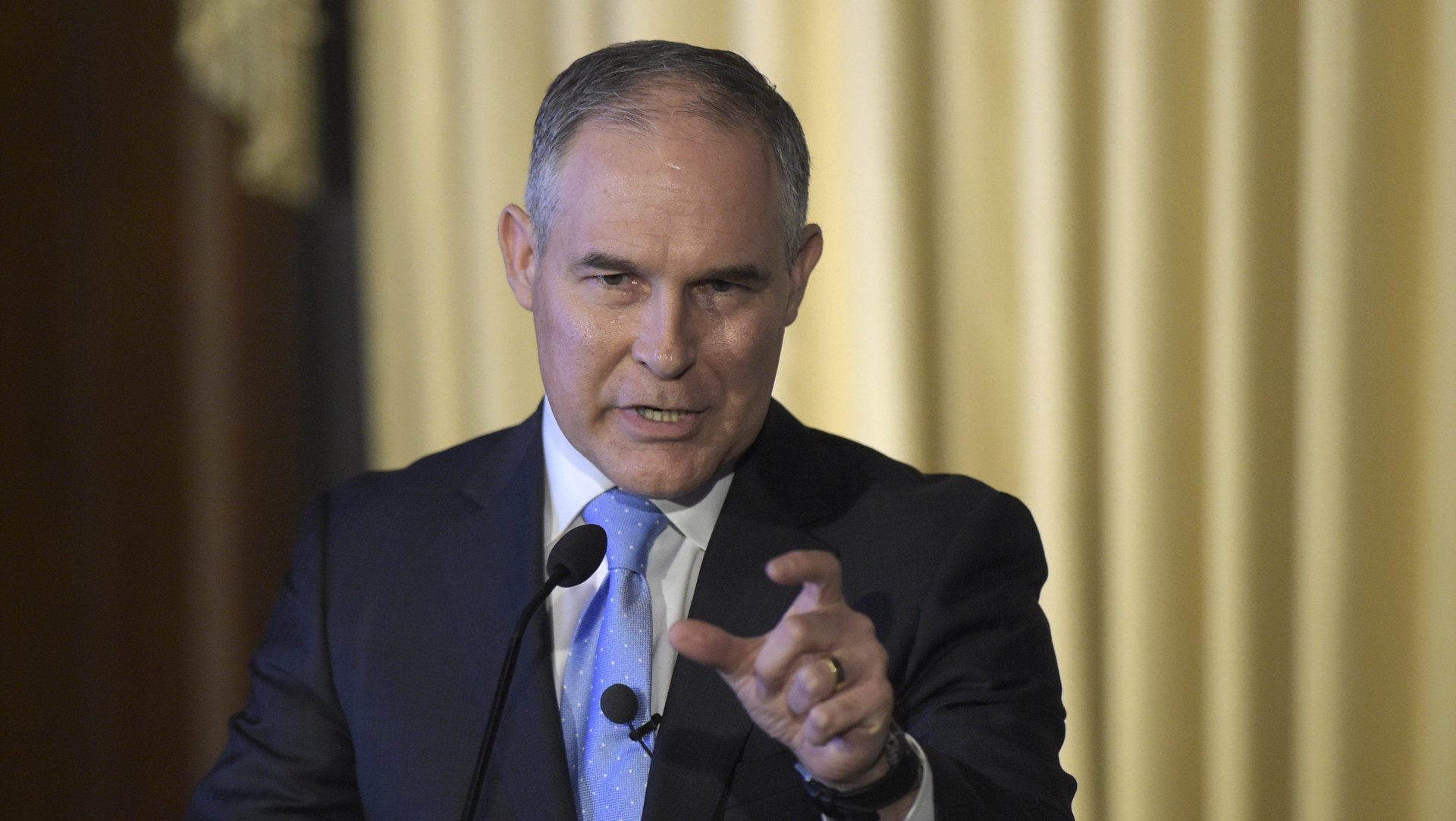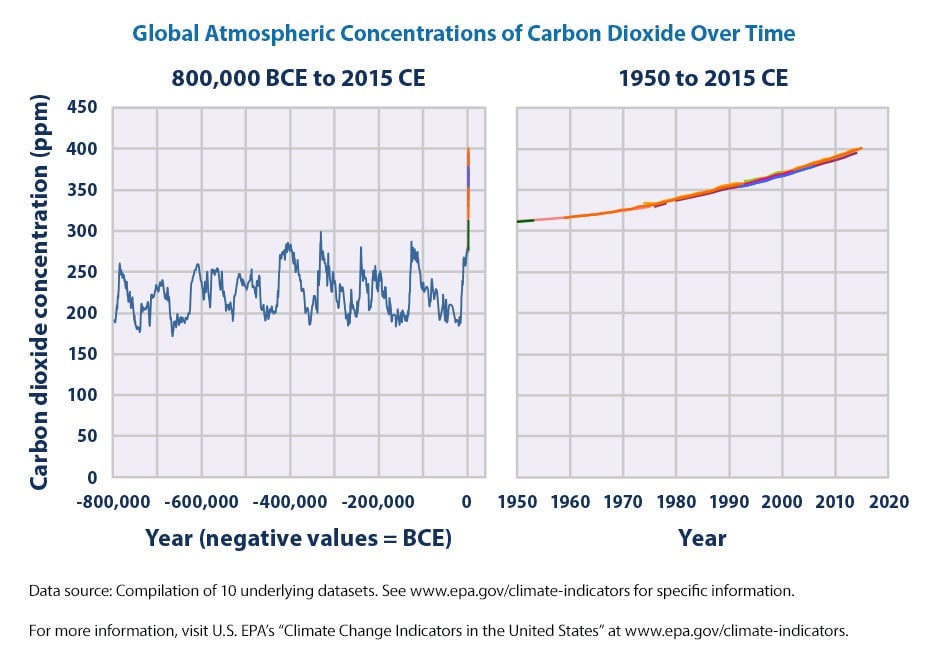On Scott Pruitt and CO2: What happens when science becomes a matter of belief?
Speaking to CNBC on March 9, Scott Pruitt, the current head of the US Environmental Protection Agency, crossed a threshold even most climate “skeptics” would consider fringe: He said he did not believe that carbon dioxide is the primary driver of global warming.


Speaking to CNBC on March 9, Scott Pruitt, the current head of the US Environmental Protection Agency, crossed a threshold even most climate “skeptics” would consider fringe: He said he did not believe that carbon dioxide is the primary driver of global warming.
This isn’t up for debate. An increase of carbon dioxide, or CO2, in the atmosphere has been proven by copious scientific evidence to be the primary driver of climate change.
Even people who reject the scientific consensus on global warming tend not to go quite that far. They may believe, as both Rex Tillerson (current Secretary of State) and Rick Perry (current Secretary of Energy) say they do, that climate change is real but that we cannot predict “with precision” just how much humans are to blame, or whether it’s bad enough to do something about (though both of those statements are also scientifically untrue). Climate deniers with more extreme views say global warming is all part of a natural fluctuation that humans couldn’t cause or stop if they wanted to (also untrue).
But Pruitt went a leap further. “Do you believe that it’s been proven that CO2 is the primary control knob for climate?” asked Joe Kernen, co-host of the CNBC morning show “Squawk Box.”
“No,” Pruitt replied. “I think that measuring with precision human activity on the climate is something very challenging to do and there’s tremendous disagreement about the degree of impact, so no, I would not agree that it’s a primary contributor to the global warming that we see.”
Scientists have known for a long time that CO2 is, in fact, the primary driver of our current warming trend. Other greenhouse gases, like methane and ozone, also contribute. But CO2 is way out in front of all of them in terms of how much it increases “radiative forcing”—in other words, how much it increases the difference between the sunlight absorbed by the Earth and the energy our planet radiates back into space.
In fact, scientists at the EPA, who are now Pruitt’s employees, are very, very sure about this. They used air bubbles trapped in ice cores to track measurements of atmospheric carbon dioxide through 800,000 years of Earth’s history.

See that spike in the graph on the left? That’s CO2 levels soaring far above anything resembling natural levels. CO2 concentrations have increased 40% over pre-industrial levels.
“Atmospheric carbon dioxide measurement precision is accurate enough to know that today’s levels are not natural,” Brenda Ekwurzel, a senior climate scientist at the Union of Concerned Scientists, wrote in a blog post after the CNBC clip was released.
To take it a step further, scientists can also say with certainty how much of this CO2 was released into the atmosphere by human activity, namely burning things—like coal, oil, and natural gas. Scientists can actually identify how much atmospheric CO2 is made up of CO2 from burning fossil fuels based on the ratios of certain carbon isotopes, Ekwurzel noted.
“With a very high level of confidence, the increase in CO2 emissions from fossil fuel burning and those arising from land use change are the dominant cause of the observed increase in atmospheric CO2 concentration,” scientists wrote in a 2013 Intergovernmental Panel on Climate Change assessment report.
In other words, the climate is warming, and human activity is the primary reason. The idea that this is uncertain is contrived.
It’s easy to believe this reality, as long as you believe in climate science as a field of scientific inquiry. But the majority of Americans don’t. A Pew poll from 2016 found that only 33% of those surveyed feel climate scientists “understand very well” whether climate change is occurring at all, and only 28% said scientists know the cause of climate change. Even fewer—27%—believe that “almost all” scientists say climate change is human-caused—even though in reality, they do. Only 39% of Pew survey respondents said they have “some” trust in climate scientists to provide a “full and accurate portrait of the causes of climate change.”
With such an extreme lack of confidence in the institution of climate science itself, the fact that Pruitt is factually wrong may fall on deaf ears—or more likely, reinforce a widely held falsehood.
“It is worth pointing out that administrator Pruitt’s blatant denial of well-established scientific facts is more than just egregious,” Ekwurzel wrote. “It is also at odds with his testimony in his confirmation hearing and in no way changes his legal obligation to regulate carbon dioxide as a pollutant.”